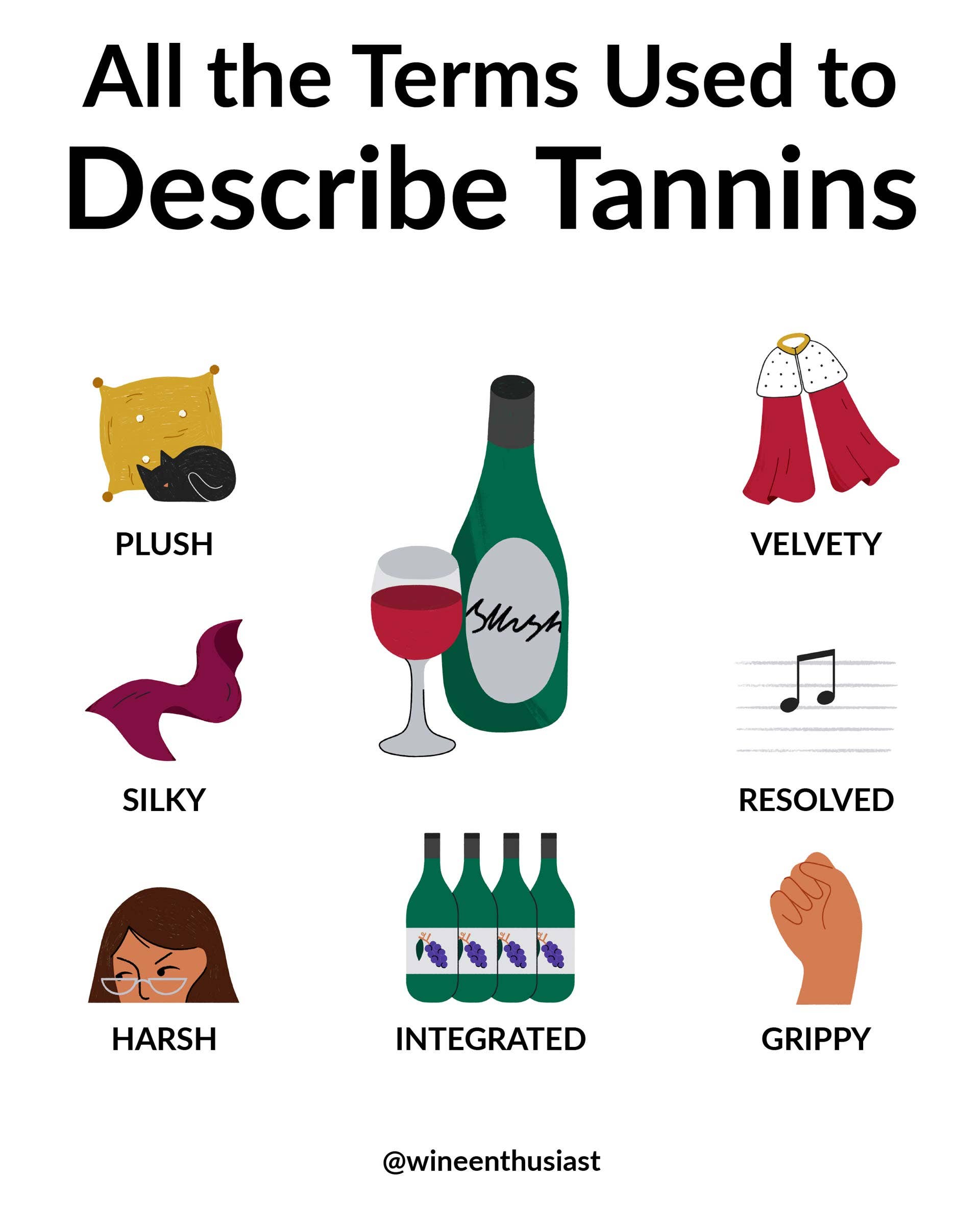Found in tree bark and grape skins, tannins are compounds that protect plants from predators. In wine, they present themselves in an array of ways.
Tannins can contribute an astringent sensation to wine and create a drying sensation in your mouth. They change over time, mellowing with age and evolving in tandem with elements like acidity and alcohol.
Both white and red wines have tannins, though the latter tends to have more due to longer contact with grape skins and seeds during the winemaking process.
To learn more about how to identify and classify tannins in wine, consider this infographic of common descriptors.

What Do These Terms Mean?
Certain words take on meanings and connotations when they’re used to describe tannins in wine.
Grippy: Immediately noticeable
Integrated: Perfectly in line with all other components, like flavor and weight
Silky: Fine-grained and unobtrusive
Plush: Soft and integrated
Velvety: Soft but with subtle grip
Resolved: Smooth, no longer astringent, typical of mature wines
Harsh: Not integrated into the wine
Last Updated: May 8, 2023















